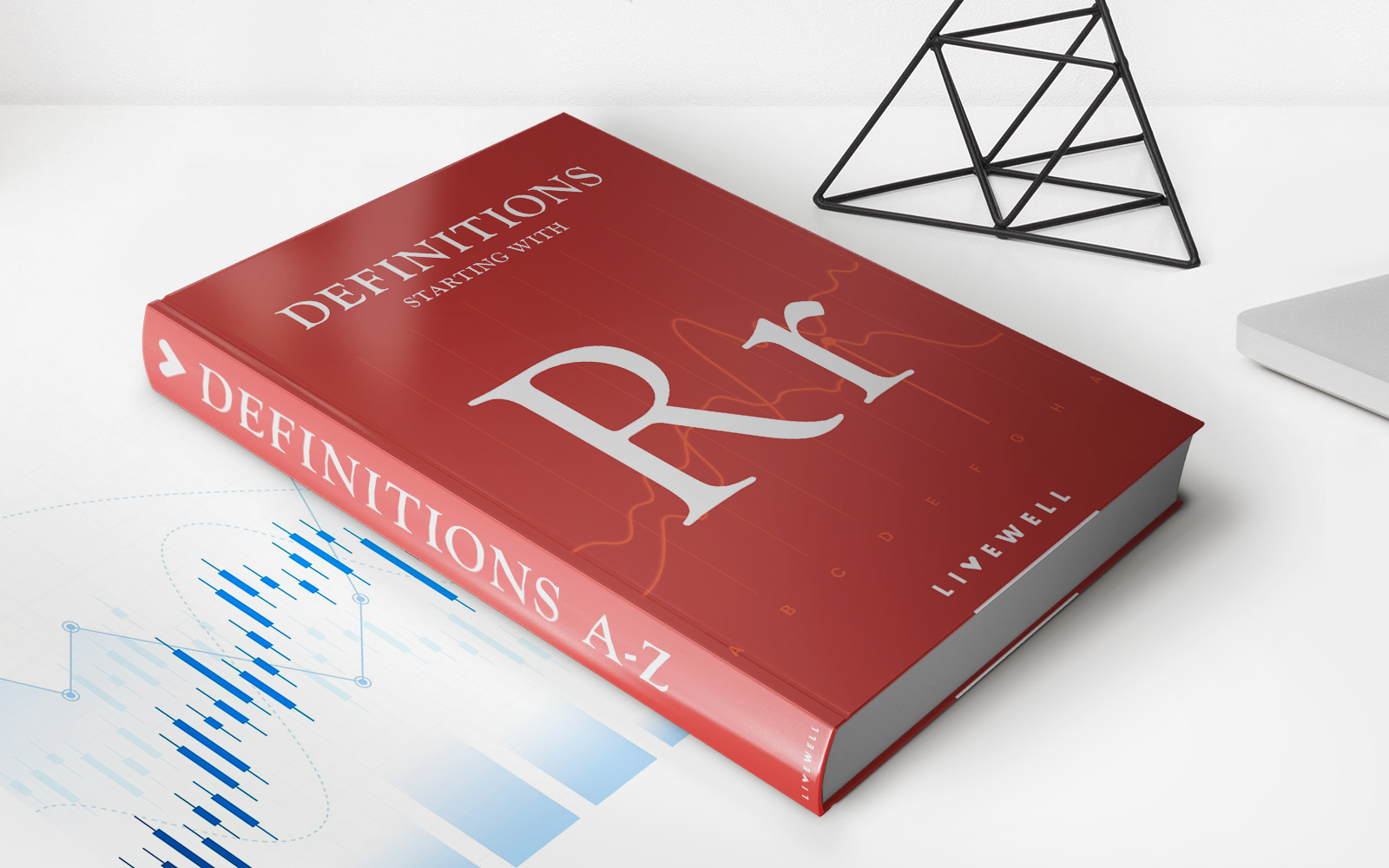

Finance
What Is A Pay Period For Health Insurance?
Published: October 29, 2023
Learn about the significance of pay periods for health insurance and how they impact your financial planning. Explore the ins and outs of finance in relation to pay periods and insurance coverage.
(Many of the links in this article redirect to a specific reviewed product. Your purchase of these products through affiliate links helps to generate commission for LiveWell, at no extra cost. Learn more)
Table of Contents
- Introduction
- Definition of a Pay Period
- Importance of Pay Periods for Health Insurance
- Types of Pay Periods
- Calculation of Premiums during a Pay Period
- Enrollment and Changes during a Pay Period
- Impact of Pay Periods on Coverage and Benefits
- Common Issues and Questions about Pay Periods for Health Insurance
- Conclusion
Introduction
When it comes to health insurance, understanding the intricacies of your coverage can often feel overwhelming. One important aspect to grasp is the concept of a pay period, as it directly affects your insurance premiums and enrollment options. Whether you’re new to the workforce or navigating changes in your employment, comprehending the significance of a pay period is crucial for making informed decisions about your health insurance.
In simple terms, a pay period refers to the time frame during which an employee’s wages are calculated, typically covering a set number of work hours or weeks. This period determines how often you receive your paycheck and also plays a role in determining the amount you contribute towards your health insurance premiums.
Understanding the specifics of pay periods in relation to health insurance is important because it affects the timing of your coverage and the amount you pay for your policy. By understanding how pay periods are connected to health insurance, you can navigate the process more effectively and ensure that you have the coverage you need.
Definition of a Pay Period
A pay period is a predetermined timeframe during which an employer calculates and disburses employee wages. This period can vary depending on the company and industry, but it generally covers a specific number of work hours or weeks. The most common pay periods are:
- Weekly: As the name suggests, employees are paid once a week, typically on a specific day, such as every Friday. This pay period is common in industries where employees work on an hourly basis.
- Bi-Weekly: This pay period occurs once every two weeks, usually resulting in 26 pay periods per year. Employees are typically paid on the same day every other week, such as every other Friday.
- Semi-Monthly: With a semi-monthly pay period, employees are paid twice a month, usually on specific dates, such as the 15th and last day of the month. This results in 24 pay periods per year.
- Monthly: In a monthly pay period, employees are paid once a month, usually on a specific date. This pay period results in 12 pay periods per year.
The duration and frequency of a pay period can impact various aspects of your employment, including health insurance premiums. Employers typically deduct insurance premiums from employees’ paychecks, either on each paycheck or on a monthly basis. The amount deducted may vary based on the pay period and the specific insurance plan offered by the employer.
It’s important to note that not all pay periods align perfectly with each calendar month. For example, if you are paid semi-monthly and your health insurance premium is charged monthly, there may be two pay periods where you do not see a deduction for your insurance premium. This is known as a “skip pay period.” Skipping a pay period does not mean you are without coverage; it simply means the premium is not deducted during that specific pay period.
Understanding the different types of pay periods and how they align with your health insurance coverage is essential for budgeting and managing your expenses effectively. It can also impact the timing of enrollment or changes to your health plan.
Importance of Pay Periods for Health Insurance
Pay periods play a crucial role in determining your health insurance coverage and the amount you contribute towards your premiums. Understanding the importance of pay periods in relation to health insurance is vital for making informed decisions and effectively managing your healthcare expenses. Here are some key reasons why pay periods matter:
1. Premium Calculation: Pay periods are used to calculate the amount you contribute towards your health insurance premiums. The frequency of your pay period affects the amount deducted from your paycheck to cover your insurance costs. For example, if you have a monthly pay period, your premium contribution will be deducted once a month, while a bi-weekly pay period will result in a deduction every two weeks.
2. Budgeting and Financial Planning: Understanding your pay period and the corresponding deduction for health insurance allows you to budget and plan your finances effectively. By knowing the exact amount that will be deducted from your paycheck, you can anticipate and account for this expense when managing your monthly budget.
3. Enrollment and Changes: Pay periods are essential when it comes to enrolling in or making changes to your health insurance coverage. Changes in employment status, such as starting a new job or experiencing a life event like getting married, often trigger opportunities to enroll in or modify your health insurance. Pay periods determine the timing of these changes and when your coverage will become effective.
4. Coverage Timing: Pay periods also impact the timing of your health insurance coverage. If you enroll or make changes during a specific pay period, your coverage may not begin immediately. The effective date of your coverage is typically tied to your pay period, so it’s essential to understand the timing when making enrollment decisions or switching plans.
5. Employer Contributions: Pay periods can also affect the amount your employer contributes towards your health insurance premiums. Some employers may allocate a fixed percentage or dollar amount towards employee premiums, while others may vary their contributions based on the pay period. Understanding these contributions can help you evaluate the overall affordability and value of your health insurance plan.
Overall, pay periods serve as a fundamental factor in your health insurance coverage and cost. They influence premium calculations, budgeting, enrollment timing, and the employer’s contribution towards your coverage. By understanding the importance of pay periods for health insurance, you can navigate the process more effectively and make informed decisions about your healthcare needs and expenses.
Types of Pay Periods
Pay periods can vary based on the company and industry, and different types of pay periods may impact the calculation of employee wages and benefits. Here are some common types of pay periods:
- Weekly: This type of pay period occurs once a week, typically covering a seven-day period. Employees are paid on a specific day each week, such as every Friday. Weekly pay periods are most common in industries where employees work on an hourly basis.
- Bi-Weekly: Bi-weekly pay periods happen every two weeks, resulting in 26 pay periods per year. Employees are typically paid on the same day every other week, such as every other Friday. This pay period is often chosen by companies to align with their budgeting and accounting processes.
- Semi-Monthly: Semi-monthly pay periods occur twice a month and typically align with specific calendar dates, such as the 1st and 15th of each month. This results in 24 pay periods per year. This pay period is commonly seen in companies that pay salaried employees.
- Monthly: Monthly pay periods occur once a month, usually on a specific date. This type of pay period results in 12 pay periods per year. Monthly pay periods are often utilized for salaried employees or those with fixed earnings.
Each type of pay period has its advantages and challenges. Weekly pay periods provide more frequent access to wages but require additional payroll processing. Bi-weekly pay periods offer a predictable schedule and simplify budgeting for both employees and employers. Semi-monthly pay periods align with specific calendar dates but may result in varying lengths between paychecks. Monthly pay periods provide a consistent schedule but may require careful budgeting to manage finances throughout the month.
It’s important for employees to understand their specific pay period and its implications on their wages, benefits, and budgeting. By knowing the type of pay period used by their employer, employees can effectively plan their finances, including health insurance premium contributions and other expenses.
Calculation of Premiums during a Pay Period
The calculation of health insurance premiums during a pay period depends on various factors, including the type of pay period and the specific insurance plan offered by the employer. Here are some key considerations when it comes to determining the premiums during a pay period:
Frequency of Deductions: The frequency of health insurance premium deductions from your paycheck will depend on the pay period. For example, if you have a monthly pay period, your premium contribution will be deducted once a month, while a bi-weekly pay period will result in a deduction every two weeks. It’s essential to understand how often these premium deductions occur to budget and manage your finances effectively.
Fixed or Variable Premiums: Some employers offer health insurance plans with fixed premiums, meaning the premium amount remains the same throughout the pay period. This simplifies the calculation and offers predictability for employees. Others may have variable premiums based on factors such as income, age, or the coverage level chosen. In this case, the premium amount may vary from one pay period to another.
Employer Contributions: Employers may provide contributions towards employees’ health insurance premiums. The amount of employer contribution can also vary based on the pay period. For example, an employer could offer a fixed dollar amount deduction per pay period or a percentage-based contribution. Understanding the employer’s contribution can help you evaluate the total cost of your health insurance coverage and its impact on your paycheck.
Partial Pay Periods: In some cases, you may start a new job or make changes to your health insurance coverage during a pay period. In such instances, the premium calculation may be prorated based on the number of days or weeks remaining in that pay period. This proration ensures that you are only responsible for the portion of the premium that corresponds to the coverage you receive during that specific period.
Effect of Skipped Pay Periods: Certain pay periods may not include deductions for health insurance premiums. For example, if you are paid semi-monthly but your health insurance premium is charged monthly, there may be two pay periods where no deduction for insurance premium occurs. These periods are commonly referred to as “skip pay periods.” It’s important to understand that these skip pay periods do not mean you are without coverage; rather, the premium is not deducted during those specific pay periods.
When it comes to the calculation of health insurance premiums during a pay period, it’s crucial to read your insurance plan documents and consult with your employer’s human resources department for specific details. Understanding how premiums are calculated ensures that you are aware of the cost implications and can effectively budget for your health insurance expenses.
Enrollment and Changes during a Pay Period
Pay periods play a significant role in determining the timing and options for enrolling in or making changes to your health insurance coverage. Understanding how pay periods impact enrollment and changes can help you effectively navigate the process. Here are some important aspects to consider:
Initial Enrollment: When you start a new job, the pay period often dictates when you can enroll in the employer’s health insurance plan. Some employers have specific enrollment periods tied to pay periods, while others allow for immediate enrollment upon starting employment. It’s essential to familiarize yourself with your employer’s policies regarding initial enrollment to ensure you don’t miss any deadlines.
Open Enrollment: Open enrollment is a designated period during which employees can make changes to their health insurance coverage. The timing of open enrollment is typically tied to the pay period cycle and may occur annually, bi-annually, or on a different schedule determined by the employer. During open enrollment, you can elect a different coverage tier, add or remove dependents, or switch to a different plan offered by your employer.
Life Events: Certain life events, such as getting married, having a child, or experiencing a change in employment status, may trigger a special enrollment period outside of the usual open enrollment period. Pay periods often determine the timing and effective date of coverage changes related to these life events. It’s essential to notify your employer or insurance provider promptly to take advantage of these special enrollment opportunities.
Changes within a Pay Period: If you need to make changes to your health insurance coverage during a pay period, such as adding or removing dependents or adjusting your coverage level, the effective date of the change will typically align with the start of the next pay period. This ensures that the change is reflected accurately in your premium deductions and coverage.
Waiting Periods: In some cases, employers may have waiting periods before an employee is eligible to enroll in the health insurance plan. This waiting period is often tied to the length of the pay period cycle. For example, if the pay period is semi-monthly, the waiting period may be one or two pay periods before you can enroll in the plan. Understanding these waiting periods is essential to plan for coverage and any potential gaps.
It’s important to familiarize yourself with your employer’s policies regarding enrollment and changes to ensure you meet all deadlines and make informed decisions about your health insurance coverage. Pay periods provide a framework for determining the effective dates of coverage changes and ensure that your premium deductions align with the chosen coverage level. Consulting with your employer’s human resources department or benefits administrator can provide specific guidance tailored to your situation.
Impact of Pay Periods on Coverage and Benefits
Pay periods have a direct impact on your health insurance coverage and benefits. Understanding this impact can help you make informed decisions and effectively manage your healthcare needs. Here are some key ways pay periods affect your coverage and benefits:
Timing of Coverage: The timing of your pay periods determines when your health insurance coverage becomes effective. If you enroll in a health insurance plan during a specific pay period, your coverage typically starts at the beginning of the next pay period. This ensures that you have continuous coverage and helps align premium deductions with the corresponding coverage period.
Waiting Periods: Some employers may have waiting periods before new employees are eligible for health insurance benefits. These waiting periods may be tied to the length of the pay period cycle. For example, if your pay period is bi-weekly, you may need to wait one or two pay periods before you become eligible for health insurance benefits. Understanding the waiting period is essential to plan for any gaps in coverage.
Effect on Deductibles and Out-of-Pocket Maximums: Pay periods affect the timing of deductible accumulation and out-of-pocket maximums. These amounts reset at the beginning of each plan year or calendar year, depending on the insurance plan. Understanding the pay period cycle can help you budget and anticipate when deductible amounts and out-of-pocket maximums reset, influencing your healthcare costs.
Contribution and Benefit Changes: Pay periods often dictate when changes to health insurance contributions and benefits take effect. If your employer modifies the contribution amounts or coverage options, these changes typically align with the start of a new pay period. It’s important to review these changes and understand their impact on your coverage and costs.
Effect on Flexible Spending Accounts (FSAs) and Health Savings Accounts (HSAs): Pay periods impact your contributions to FSAs and HSAs, which are tax-advantaged accounts used to cover eligible healthcare expenses. Contributions to these accounts are typically deducted from your paycheck on each pay period. Understanding your pay period cycle helps you plan and allocate the appropriate amount to these accounts.
Termination of Coverage: If your employment ends or you experience a change in employment status, the pay period cycle often determines the end date of your health insurance coverage. For example, if your pay period is bi-weekly and your employment ends in the middle of a pay period, your coverage will typically terminate at the end of that pay period. It’s crucial to understand this timing to explore options like COBRA or alternative coverage options to avoid gaps in insurance coverage.
Understanding the impact of pay periods on your health insurance coverage and benefits enables you to proactively manage your healthcare needs and expenses. It also helps ensure a smooth transition during changes in employment status and allows you to take advantage of any available benefits and contribution opportunities.
Common Issues and Questions about Pay Periods for Health Insurance
When it comes to pay periods and health insurance, there are several common issues and questions that individuals may encounter. Understanding these concerns can help you navigate the complexities of health insurance and make informed decisions. Here are some frequent issues and questions related to pay periods for health insurance:
1. Skipping Pay Periods: Individuals may wonder what happens when a pay period doesn’t include a deduction for health insurance premiums. It’s important to note that this does not mean you are without coverage during that period. It simply means the premium is not deducted from your paycheck during that specific pay period. Your coverage remains intact.
2. Changing Jobs and Coverage Gaps: Many individuals are concerned about potential coverage gaps when transitioning between jobs with different pay periods. It’s essential to understand the specific policies of your employer and their health insurance enrollment process to ensure a seamless transition and avoid any gaps in coverage.
3. Contribution Changes: Employees may have questions about how changes in pay periods, such as switching from weekly to bi-weekly or monthly, can affect their health insurance premium contributions. It’s important to consult with your employer or benefits administrator to understand how these changes may impact your contributions.
4. Eligibility for Coverage: Employees may have concerns about when their health insurance coverage becomes effective based on their pay period. Understanding the waiting period or probationary period associated with your employment can help clarify when you are eligible for benefits.
5. Impact on Deductibles and Copayments: Pay periods can impact the accumulation of deductibles and the calculation of copayments. Understanding how your pay period aligns with the plan year or calendar year can help you anticipate when deductibles reset and how copayments are calculated for each pay period.
6. Mid-Pay Period Changes: Individuals may wonder what happens if they need to make changes to their health insurance during a pay period, such as adding a dependent or adjusting their coverage level. Typically, these changes take effect at the start of the next pay period to ensure accurate premium deductions and coverage adjustments.
7. Impact on Flexible Spending Accounts (FSAs) and Health Savings Accounts (HSAs): Pay periods can impact the contribution and utilization of FSAs and HSAs. Understanding how often contributions are deducted from your paycheck and when funds can be accessed is essential for maximizing these tax-advantaged accounts.
It’s important to reach out to your employer’s human resources department or benefits administrator for specific guidance regarding your pay periods and health insurance. They can address any concerns or questions you may have and provide the necessary information to ensure you have a clear understanding of how pay periods impact your health insurance coverage.
Conclusion
Understanding pay periods in relation to health insurance is crucial for effectively managing your coverage and expenses. Pay periods impact various aspects of your health insurance, including premium calculations, enrollment timing, and coverage effective dates. By familiarizing yourself with the specifics of your pay period and its implications on your health insurance, you can make informed decisions and navigate the healthcare system more effectively.
Remember that different types of pay periods, such as weekly, bi-weekly, semi-monthly, and monthly, have their own advantages and challenges. Pay periods also play a role in determining when deductible and out-of-pocket amounts reset, as well as employer contributions towards premiums. It’s important to stay informed about the policies and timelines set by your employer regarding enrollment periods, coverage changes, and contribution adjustments.
Common issues and questions regarding pay periods for health insurance often revolve around coverage gaps, eligibility, contribution changes, and the impact on deductibles and copayments. By seeking clarification from your employer’s human resources department or benefits administrator, you can address these concerns and ensure a seamless transition in your health insurance coverage.
Ultimately, understanding how pay periods interact with your health insurance empowers you to make informed decisions about your coverage, budget effectively, and proactively manage your healthcare needs. By staying engaged and informed, you can take control of your health insurance and navigate the ever-changing landscape of healthcare with confidence.














